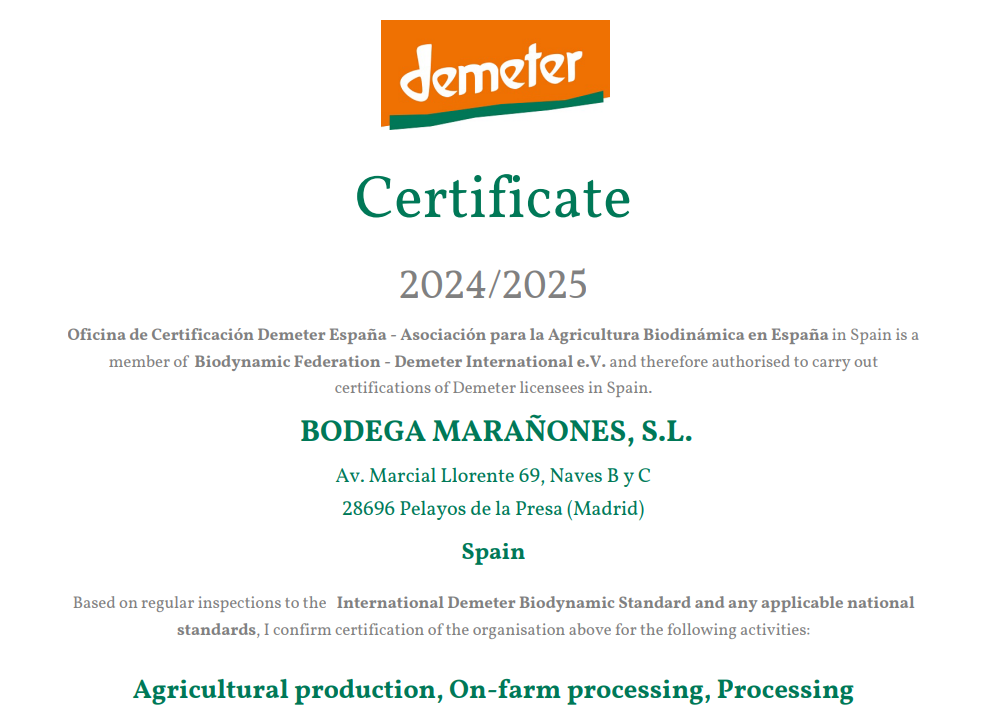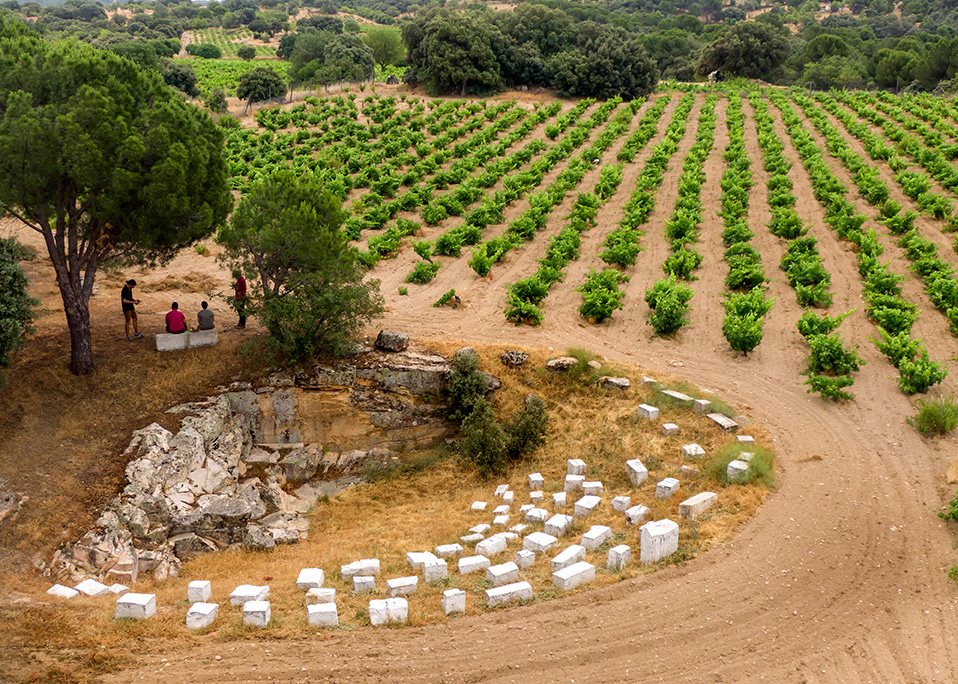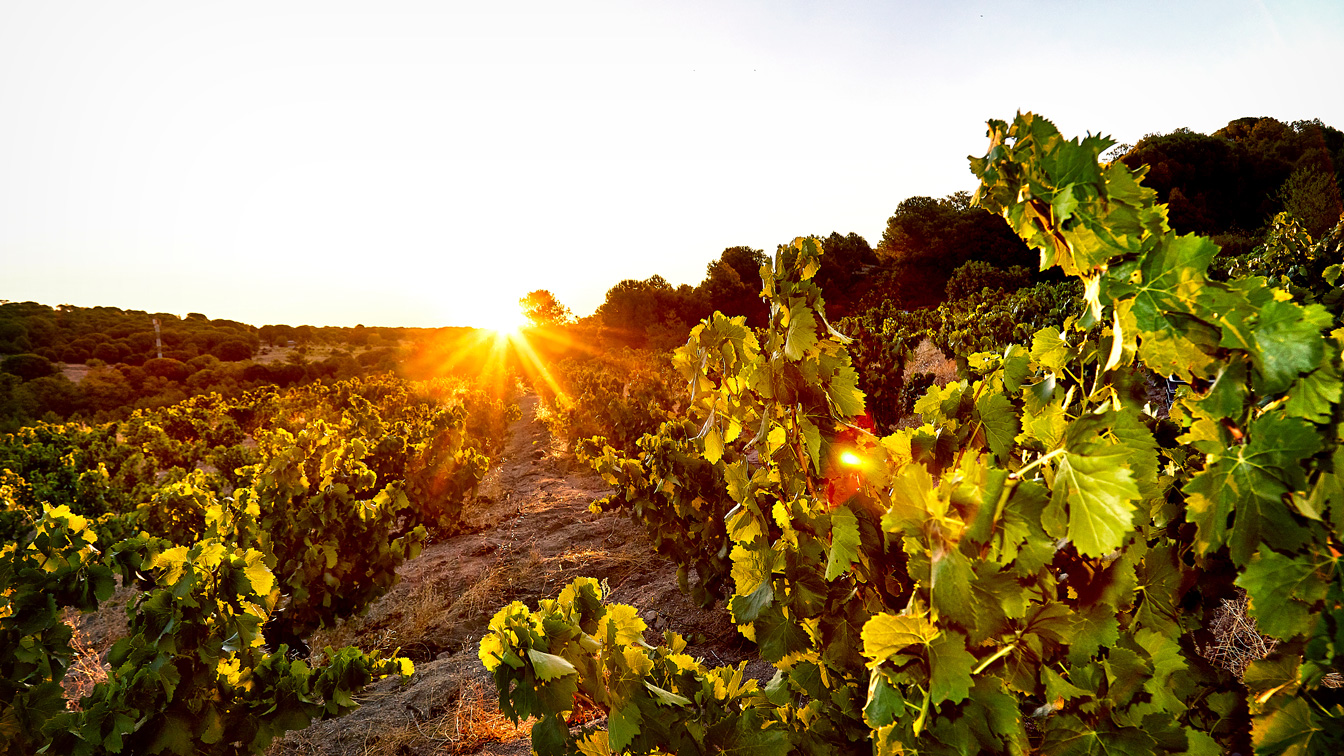The requirements of the Demeter standards are higher than those required for organic products and endorse the commitment of Marañones and all of Alma Carraovejas to biodynamics.
Bodega Marañones is the first winery in the Alma ecosystem to obtain this certification and becomes one of the few in Spain that can boast of it.
With almost 25 hectares of vineyards certified biodynamic, the Marañones estate is an example of exceptional biodiversity and conscious viticulture adapted to the environment. At Marañones we have been working since 2022 to obtain this certification and today we can say that we have achieved it. Agricultural production and the processing of raw materials in the winery, from now on, have a new seal that ratifies our holistic vision and our desire to go beyond; demanding much more of ourselves and interpreting and adapting to the rhythm set by the vineyard.
Starting with the 2024 vintage, we will be able to include Biodynamic Agriculture certification on our labels. The 2023 vintage is already certified organic. To take this step, we chose to work with one of the most demanding certifiers: Demeter, which requires a minimum of two cycles to complete the initial certification process. In case there are any doubts, having a certified organic vineyard -something we have been developing not only in Marañones, but in all Alma Carraovejas vineyards in recent years- is a prerequisite for biodynamic certification.

What is biodynamics in the wine industry?
Biodynamics is a philosophy and way of understanding agriculture based on the principles of restoring organic matter and soil functions in agriculture. The best implication of biodynamics focuses on the recovery of soils; on taking into account their microbiology, their environment, their flora and fauna.
“Here we are not just talking about the mineral components, but the whole microbiology surrounding the soil and its environment. The soil is considered as a whole: minerals, microbiology, and the interaction between the two, always with the idea of achieving balance in the soil,” explains Javier Blasco, the winery’s winemaker, who also stresses the importance of the earth’s impulses and the cosmic rhythms that influence the vineyard.
Why Biodynamic Agriculture?
At Marañones, as at the rest of Alma, it is never enough. In our constant quest to produce wines that excite those who taste them, we explore new techniques in viticulture that, curiously enough, take us back to the past. Exactly to 1922, when the philosopher Rudolf Steiner presented the biodynamic farming method. A form of viticulture that demands a high level of commitment and dedication, with multiple forms of interpretation and adaptation for each crop, all with the aim of obtaining stronger and more resistant plants.
Conventional agriculture has always been improving productivity at the expense of everything and has forgotten certain basics such as that the plant lives from the soil. Organic agriculture is an advance, in this sense, from conventional agriculture and forces you to be aware of diseases, cultivation and organic matter.
Biodynamics is the leap: you have to take into account microbiology, cosmic impulses and all the factors that are around. It means being close to the crop.
What treatments do we perform?
“The work we do in the vineyards according to the biodynamic philosophy allows us to have a much more balanced vineyard. Depending on the year, there will be some contributions or others”, explains Javier Blasco.
The usual treatments are the 500 preparation, the Maria Thun preparation, and the silica preparation. “All this contributes to improving the health of our soils, increasing microbiological activity and sponginess. That improved health translates into increased disease resistance and greater vigor, provided there is effective, quality organic matter.” We also prune in downward moons, which allows us to get the sap lower in the plant and thus achieve a better reserve for bud break and the rest of the cycle.






